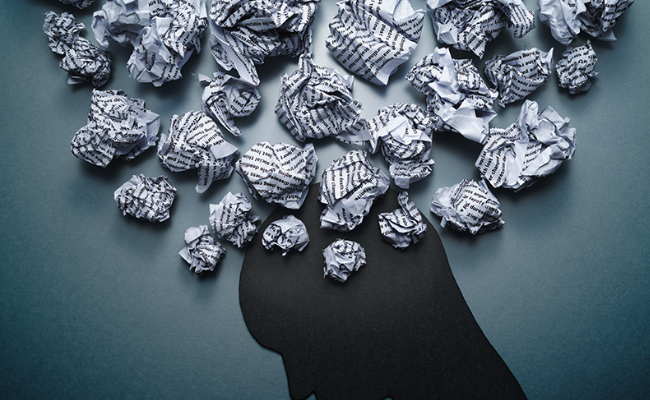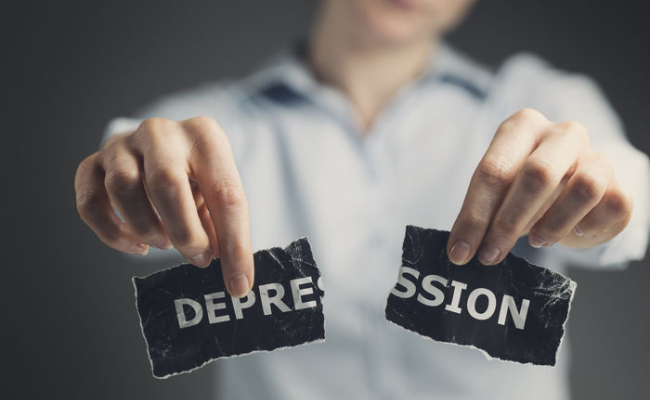Understanding Depression and Long-Term Disability: What You Need to Know
Depression is a mental condition that affects millions of people worldwide. Characterized by persistent feelings of sadness and hopelessness, major clinical depression can prevent individuals from doing everyday tasks, including working.
In these cases, people can receive short- or long-term disability benefits. This article will explain how depression affects long-term disability and explore the impact of depression on individuals and society.
Symptoms and Types of Depression
 Depression symptoms can vary among individuals, some more severe than others. These symptoms may occur most of the day, almost every day.
Depression symptoms can vary among individuals, some more severe than others. These symptoms may occur most of the day, almost every day.
Common symptoms of depression include:
- Difficulty sleeping
- Fatigue
- Feelings of worthlessness
- Difficulty concentrating
- Thoughts of suicide or self-harm
- Persistent sadness and irritability
- Loss of interest
- Loss of appetite
Different Types of Depression
There are several types of depression. The most common are major depressive disorder, persistent depressive disorder (PDD), and seasonal affective disorder (SAD).
However, people can also experience bipolar disorder, postpartum depression, and premenstrual dysphoric disorder. Here’s how mental health experts categorize each:
Major depressive disorder: This is the most common type of depression. It is characterized by persistent sadness or hopelessness for at least two weeks.
Persistent depressive disorder (PDD): Formerly known as dysthymia, PDD is a milder form of depression lasting at least two years.
Seasonal affective disorder (SAD): SAD is associated with changing seasons. It is typically experienced during winter.
Bipolar disorder: This involves depression and manic or hypomanic episodes.
Postpartum depression: This depression occurs after birth and is characterized by sadness, anxiety disorders, and exhaustion.
Premenstrual dysphoric disorder: This affects some women during their menstrual cycle.
You may also like: A Complete Formula for Overcoming Depression
The Link Between Depression and Long-Term Disability

Photo credit: Adobe Stock
Depression can contribute significantly to long-term disability and affect one’s daily life. This may result in long-term disability for depression sufferers. Depression can also exacerbate other health conditions, such as anxiety disorders, further contributing to long-term disability.
Prevalence of Depression and Long-Term Disability
The National Institute of Mental Health (NIMH) reports that approximately 19.1 million adults (7.8% of the adult population) experienced at least one major depressive episode in 2019.
Depression can affect people from various age groups, genders, and backgrounds. Women are more likely to experience depression than men, and the risk of depression rises with age.
Causes of Depression and How They Relate to Long-Term Disability

Photo credit: Adobe Stock
Genetic factors: People with a family history of depression are likelier to develop the condition.
Environmental factors: Stress, trauma, and social isolation, can also contribute to depression. Traumatic events like death or a natural disaster can trigger depression.
Biological factors: Imbalances in brain chemistry and hormone levels can cause depression. Changes in the levels of neurotransmitters, like serotonin and dopamine, can affect moods and lead to depression.
Treatment Options for Depression
Depression is treatable with various approaches, including psychotherapy, medication, lifestyle changes, and alternative and complementary treatments. The best treatment options for depression vary depending on the severity of symptoms, underlying causes, and personal preferences.
Psychotherapy
Psychotherapy involves working with a mental health professional to address emotional, behavioral, and interpersonal issues. Cognitive-behavioral therapy identifies and changes negative thought patterns and behaviors. These can contribute to mental health issues, including depression and anxiety.
Interpersonal therapy focuses on improving relationships and communication skills. IPT is used to treat depression and other mood disorders. Psychodynamic therapy explores unconscious thoughts and emotions contributing to mental health issues.
Medication
Antidepressant medication can be helpful for people with moderate to severe depression. They work by altering the number of neurotransmitters in the brain responsible for mood regulation.
Serotonin-norepinephrine reuptake inhibitors (SNRIs) and selective serotonin reuptake inhibitors (SSRIs) are common antidepressants.
Lifestyle Changes and Self-Help Strategies
Positive lifestyle changes can help improve your mood and reduce symptoms of depression. This can include regular exercise, a healthy diet, adequate sleep, and less stress.
Alternative and Complementary Treatments
Alternative therapies like acupuncture, massage, yoga, and meditation may be helpful for people with depression.
You may also like: 77% Of Americans Turn To Unhealthy Methods in Mental Health Crisis
Understanding Disability Benefits for Depression
Depression is a disability under the ADA (Americans with Disabilities Act). You can get Social Security benefits if you meet the qualifying criteria. Some employers offer disability insurance plans that provide additional coverage for individuals with depression, which can supplement federal programs like the Social Security Disability Insurance (SSDI).
Overview of Disability Benefits
Short-term disability benefits typically provide coverage for up to 26 weeks. They are intended to provide financial assistance during the initial phase of a disability.
Long-term disability benefits provide coverage for longer. Usually, they work until they reach retirement age. Federal programs like SSDI help those who cannot work due to a disability.
Eligibility Requirements for Disability Benefits for Depression
- You must have been diagnosed with depression by a medical professional.
- Your depression must last for at least 12 months or result in death.
- Your depression must be severe enough that it causes considerable limitations in your ability to perform simple work-related activities.
- You must have worked and paid into Social Security for sufficient time to be eligible for SSD benefits.
How to Apply for Disability Benefits for Depression
- You must provide personal, employment, and financial information when applying for SSDI or private insurance benefits. In addition, you must provide your medical records.
- Review the eligibility requirements for the program you are applying for to ascertain you meet the criteria.
- Complete and apply to the appropriate program.
- The waiting period may vary depending on the program you apply for and the complexity of your case.
- For SSDI benefits, it can take several months or longer to receive a decision. For private insurance benefits, the timeline may vary depending on your insurance provider.
- Provide comprehensive medical records that document your depression and its impact on your daily life. This crucial step proves the severity of your condition during the application process.
Potential Challenges When Applying for Disability Benefits for Depression

Photo credit: Adobe Stock
Unfortunately, a stigma is still attached to mental health conditions, including depression. This stigma can lead to biases in the disability benefits process. These beliefs make finding support more challenging for individuals with depression.
It may be difficult to prove the severity of the condition. Unlike physical disabilities, depression may not show visible signs that can be used as medical evidence in the application process.
Workplace Accommodations and Support
Depression can significantly impact a person’s ability to work. With appropriate workplace accommodations and support, depressed individuals can still thrive at their jobs.
Standard Workplace Accommodations for Employees with Depression
There are several workplace accommodations for employees with depression. They include flexible work schedules, adjusting workload, or temporarily reducing their responsibilities.
The Role of Employers in Supporting Employees with Depression
Employers can create and implement mental health policies that support employees with depression. Employer-sponsored policies should include information on accommodations, resources, and communication strategies.
Related Articles
Coping with Depression and Long-Term Disability
Living with depression can be a challenging experience. With the right resources and actions, individuals can live through and overcome depression. Here are some tips to help you manage depression symptoms:
- Practice stress-reduction techniques, such as mindfulness, deep breathing, or yoga.
- Establish a regular sleep schedule and aim for at least 7-8 hours each night.
- Set practical goals and break them into smaller, manageable tasks.
- Keep in touch with loved ones, and participate in social activities.
- Avoid self-medication.
- Seek professional help from a mental health practitioner.
These strategies may help you cope with long-term disability:
- Contact family, friends, or a support group for help and understanding.
- Participate in hobbies or interests you enjoy, or find new ones that are accessible and enjoyable. This can provide a sense of purpose and fulfillment.
- Work with a therapist or psychiatrist who specializes in disability issues.
- Consult a disability lawyer to file long-term disability claims with their insurance company.
The Importance of Seeking Support and Resources
Seeking help from mental health professionals can provide valuable guidance and support for managing mental illness and long-term disability. These professionals can help individuals develop coping strategies, learn new skills, and provide medication management if necessary.
Conclusion
Managing depression can be a challenging process. Seek professional help, connect with support groups, access educational resources, and practice self-care.
Those suffering from depression can work with disability lawyers to file long-term disability claims with your insurance company.

